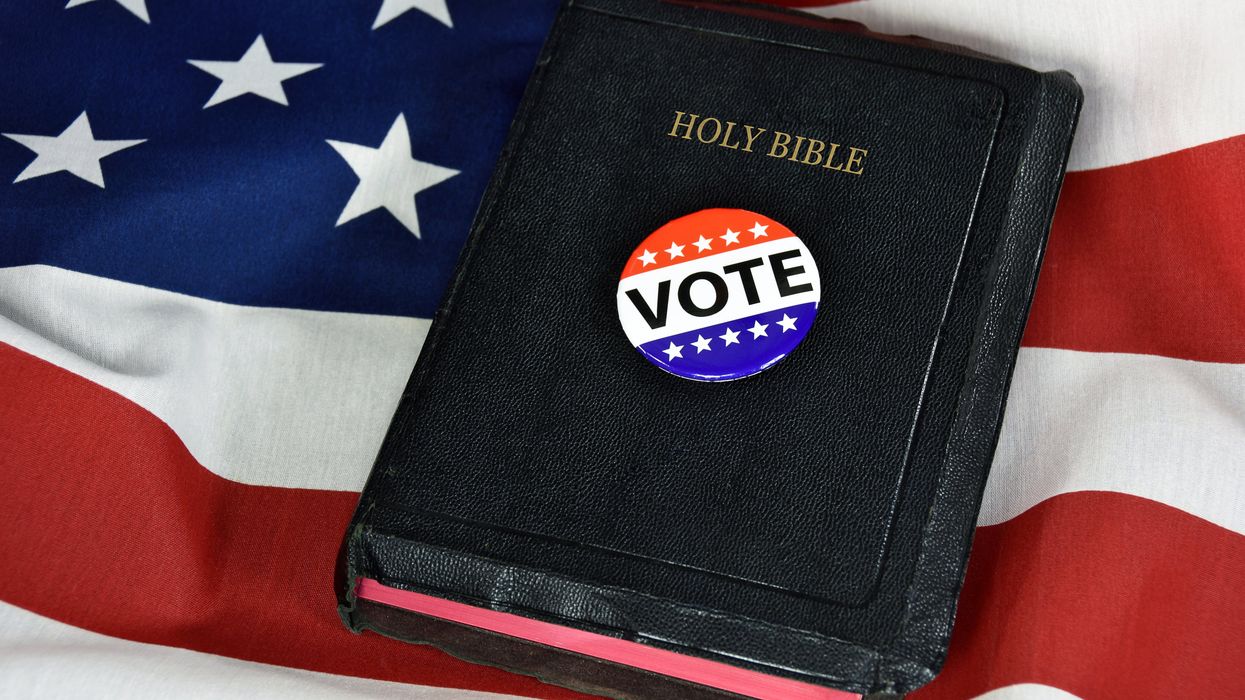Becvar is co-publisher of The Fulcrum and executive director of the Bridge Alliance Education Fund.
Many people are feeling the weight of the presidential election, often carrying concerns about violence at their polling place. This election will be a test of our democracy and our faith, which is why early planning and even more robust strategic engagement by the faith community has been critical.
One organization that has been working to address this concern since 2020 is Faiths United to Save Democracy. The coalition kicked off its work in 2020 amid the big push of the racial reckoning movement. At first, FUSD focused primarily on anti-Black vote suppression, and the lawyers committee for civil rights (dubbed “Lawyers and Collars”) started following 400 voting rights suppression initiatives aimed at suppressing a wider swath of voters.
Since then, FUSD has expanded its scope to identify 10 states where it had trusted leaders with strong and diverse local networks. The coalition strategically focused on Alabama, Arizona, Florida, Georgia, Michigan, North Carolina, Ohio, Pennsylvania, Texas and Wisconsin. These state networks needed to have the capacity to ensure proper support for replicating their national nonpartisan, multiracial, multi-faith, and multigeneration voter protection campaign. The current campaign runs through Inauguration Day 2025, encompassing voter education, voting action and getting those votes counted.
This campaign has targeted low-income families, distressed communities, and communities with high disparities according to the GINI index.
They have held seven training sessions for “poll chaplains” (ordained leaders) and “peacekeepers” (lay leaders) since July, with a total of 1,400-1,500 leaders attending each of these remote sessions. Participants have come from all over the country for training conducted in conjunction with the Election Sabotage Response Network.
These poll chaplains and peacekeepers will tend to the polls and souls of America in November. FUSD state leaders and interfaith community members representing thousands of congregations are ready to stand against any politician or system making it more difficult for any person to exercise their sacred right to vote, particularly low-income, Black, brown, elderly or disabled voters.
With disinformation and violence threatened at the polls in many states, the multifaith, multiracial, intergenerational poll chaplains and peacekeepers will help provide a calming and moral presence to de-escalate potential conflict and support vulnerable voters, such as the elderly, disabled, youth and other disenfranchised citizens.
Historically, Black Americans have been pushed away by voter intimidation, violence and oppression, but FUSD believes that ignoring voter apathy will allow the enemy of constitutional democracy to win. This is why the leaders are prepared to do the hard work and also talk to Gen Z and unregistered voters across the country and go wherever we are needed to encourage voter participation.
In a press release. FUSD stated that the strength of the organization comes from an ability to be there for each other and knit people together from different places, races and faiths into a bigger tapestry. In order for the U.S. to be a country of freedom and justice for all, FUSD says, we cannot let politicians divide us or pit us against each other based on what someone looks like or how much money they have.
“We must pick leaders who honor the Imago Dei — the image of God in all people — and treat others as they want to be treated. We must pick leaders who are committed to building a more just and inclusive multiracial democracy. Together, we can make this country a place where freedom and community are for everyone, no exceptions,” said Rev. Jim Wallis.
As Americans, we value our freedoms. We value the freedom to earn a good living and care for our families. We value the freedom to cast our votes and elect our leaders. We can choose more freedom this election season, and we have the power to choose to have more human rights that will support us all, young and old. Together we must ensure that everyone in our communities can and actually will exercise their sacred freedom to vote and decide the future of this country in November.
Explore the work of this coalition further by calling 1-866-OUR-VOTE or visiting them at https://866ourvote.org/



















 From left to right: Gabriel Cardona-Fox, Bud Branch, Joe Concienne
From left to right: Gabriel Cardona-Fox, Bud Branch, Joe Concienne 
Trump & Hegseth gave Mark Kelly a huge 2028 gift